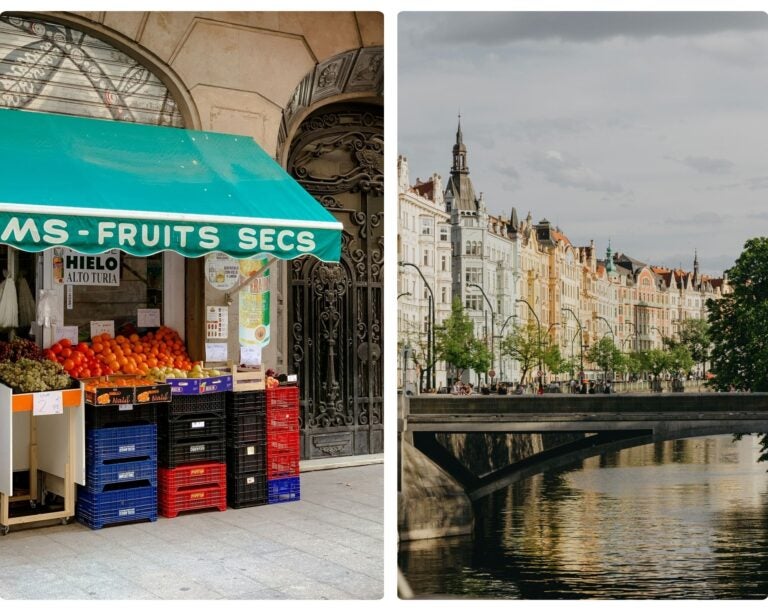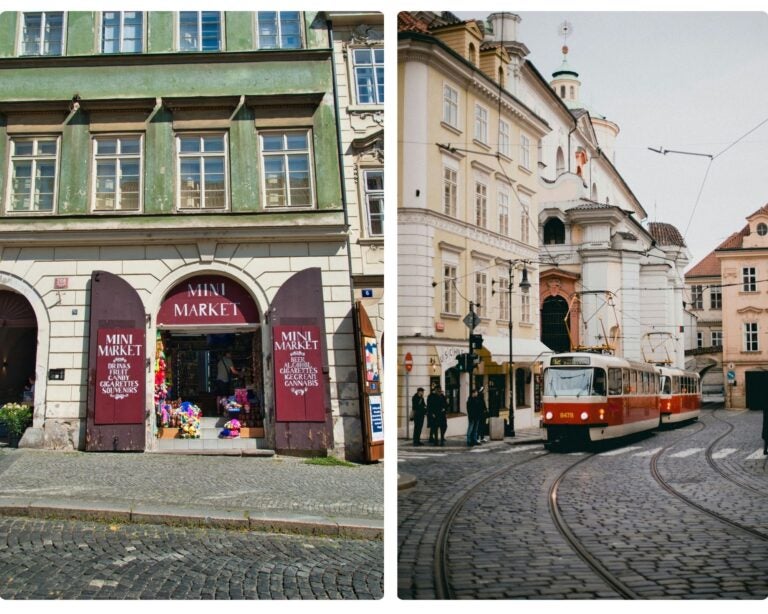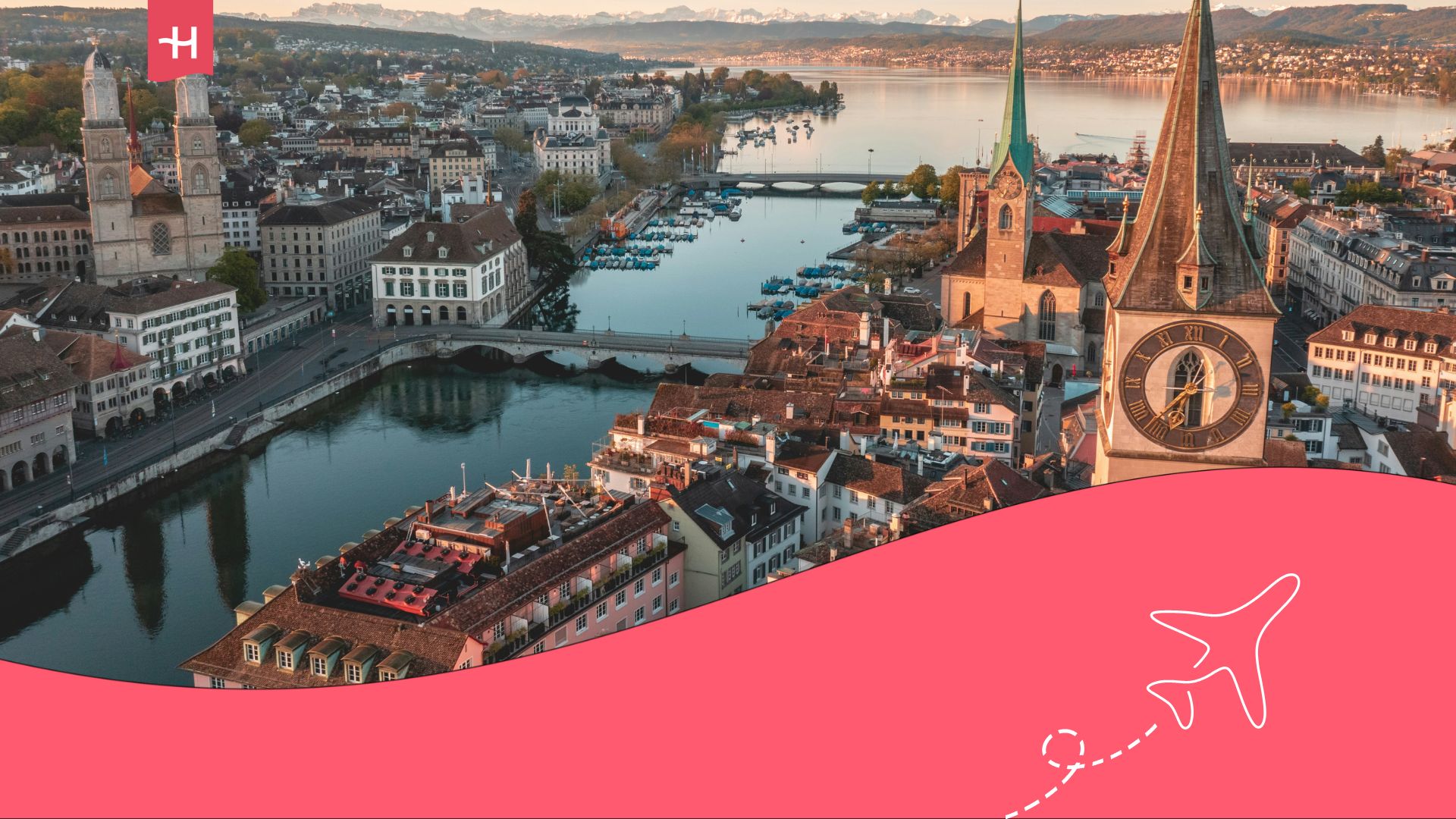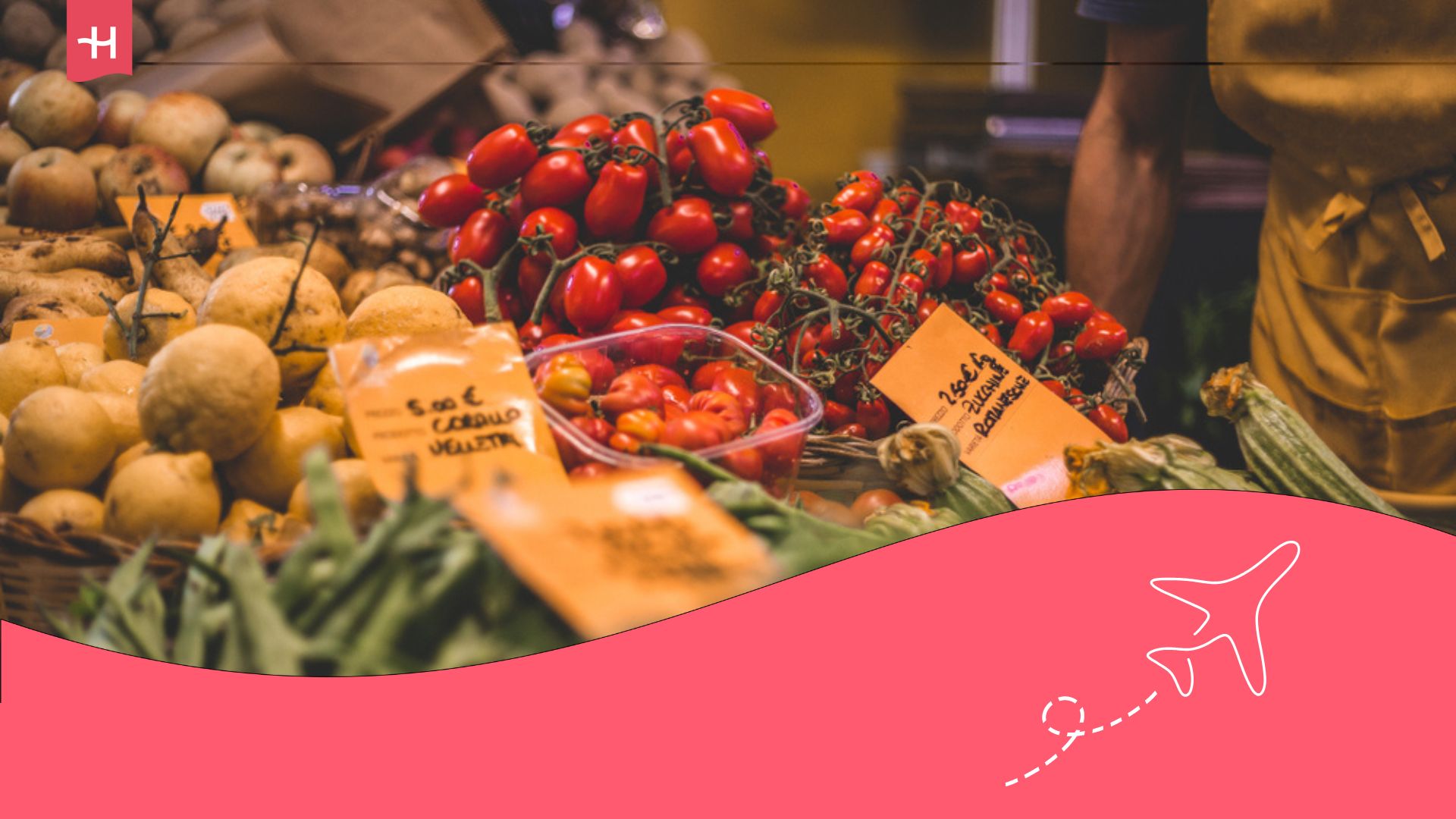Best supermarkets in Prague: Where to go grocery shopping?
Here you will find a list of the best supermarkets in Prague, so you can choose the one that best suits your needs and lifestyle.
If you’re thinking about moving to Prague, or have just arrived, one of the first practical things you’ll want to figure out is where to shop for groceries, household items, and other everyday needs. To make it easier, here’s a list of the best supermarkets in Prague, so you can see which ones fit your budget, lifestyle, and preferences. There’s a wide range of choices, from international chains to local favorites, giving you plenty of flexibility. Keep reading to find out more.
In this guide, you’ll also find store hours, the pros and cons of each supermarket, the types of shops you can expect to see in Prague, and useful information about other businesses available to both locals and visitors in the city.
What types of stores are there in Prague?
Prague has a diverse network of stores and supermarkets that can be classified into several levels according to their size, location, and offerings:
- Large supermarkets (supermarkety): These are the most common places to do your weekly shopping. They usually offer a good selection of fresh food, cleaning supplies, drinks, and household items. Examples include Albert, Tesco, and Lidl.
- Convenience stores (potraviny): You can find them on almost every corner. They are small but convenient for quick stops to grab bread, dairy products, drinks or snacks. They usually stay open late, although prices are higher than in larger supermarkets.
- Specialty stores: In Prague, it’s easy to come across bakeries, butcher shops, and organic stores (bio obchody). They’re perfect if you prefer fresh, high-quality products, though prices are usually a bit higher.
- Local markets: Across different neighborhoods, you’ll find open-air markets selling fruits, vegetables, and other fresh products from regional producers. One of the most popular is the Náplavka Market, especially on weekends.

The most notable supermarkets in Prague
Albert
Albert is one of the largest and most well-known supermarket chains in the Czech Republic. It was established in the 1990s and today operates more than 300 stores across the country, including several locations in Prague.
When it comes to selection, Albert offers a mix of local and international brands, along with its own budget-friendly private label. The produce and bakery sections are well stocked, and you’ll also find a range of ready-to-eat options.
In terms of prices, Albert is in the mid-range. It is more expensive than Lidl, but more affordable than Tesco when it comes to imported products. For example:
- 1 liter of milk costs around $1.20.
- A loaf of fresh bread costs around $1.
- A kilo of apples costs around $1.50.
Albert supermarkets are usually open from 7:00 am to 9:00 pm, although branches located in shopping centers may have extended opening hours.
In addition to its many branches in Prague, Albert can be found in almost every Czech city, making it a reliable choice for people who travel or relocate to other parts of the country.
Advantages and disadvantages of Albert
| Advantages | Disadvantages |
| Wide coverage throughout the country | Prices slightly higher than Lidl |
| Good variety of local and imported products | Can be very crowded during peak hours |
| Affordable brands | Does not always offer as many promotions as other chains |
| Full bakery and fresh fruit sections |
Important: If you are a frequent traveler and want to stay connected without worrying about expensive roaming or looking for a new SIM at every destination, Holafly’s subscription plans are for you. With a single eSIM, enjoy internet in more than 170 countries for a fixed price and no surprises on your bill. Travel without limits and connect easily and securely! 🚀🌍

Lidl
Lidl is one of the most popular German supermarket chains in Prague and across Europe. It’s known for its competitive prices and focus on high-quality everyday essentials. In Prague, you’ll find numerous locations throughout the city, making it very convenient for daily shopping.
In terms of selection, Lidl carries a lot of products under its own brand, which helps keep prices low without compromising on quality. You’ll also find fresh bakery items, affordable fruits and vegetables, and weekly promotions that change regularly.
In terms of prices, Lidl is usually the cheapest option among large supermarkets. For example:
- 1 liter of milk: $1.
- A loaf of fresh bread: $0.60.
- 1 kilo of tomatoes: $1.20.
Opening hours are usually from 7:00 am to 9:00 pm, although some branches close at 10:00 pm.
Lidl can be found in all major Czech cities, and its network continues to grow. In Prague, there are plenty of locations, so chances are you’ll have one close to home.
Advantages and disadvantages of Lidl
| Advantages | Disadvantages |
| Very competitive prices | Less variety of international brands |
| Attractive weekly promotions | Some stores may have limited space |
| Fresh bakery products and vegetables | Certain items on sale may be out of stock |
| Widespread presence in Prague and across the country |
Tesco
Tesco is a British chain with a strong presence in the Czech Republic. In Prague, its stores range from small convenience shops (Tesco Express) to large hypermarkets where you can find almost everything, from groceries and clothing to household goods and even electronics.
Its main appeal is the wide range of international brands, making it a good option for those looking for specific products that aren’t always available at Lidl or Albert.
In terms of prices, Tesco falls in the mid-to-high range. Some everyday items may be more expensive than at Lidl, but the store often offers promotions through its Clubcard. For example:
- 1 liter of milk: $1.
- A loaf of bread: $0.80.
- 1 kilo of bananas: $1.60.
Opening hours: Hypermarkets are usually open from 6:00 am to 10:00 pm, while Express stores are open until midnight.
Tesco has numerous branches throughout the country, although it is concentrated more in large cities.
Advantages and disadvantages of Tesco
| Advantages | Disadvantages |
| Wide variety of international products | Higher prices on basic products |
| Different store formats (Express, Superstore, Hypermarket) | May be more expensive than Lidl and Albert |
| Discount programs with Clubcard | |
| Clothing and home goods sections in hypermarkets |
Billa
Billa is an Austrian supermarket chain that also has a strong presence in Prague. It’s known for its wide selection of fresh fruits, vegetables, and other fresh products, as well as a mix of local and European brands.
This is a popular choice for those looking for quality fresh produce, although its prices tend to be in the mid-to-high range. Example:
- 1 liter of milk: $1.
- Fresh bread: $0.80.
- 1 kilo of oranges: $1.60.
Opening hours: Branches are generally open from 7:00 am to 9:00 pm. Some branches located in metro stations or city centers have longer opening hours.
Billa has several stores in Prague and other major cities across the country.
Advantages and disadvantages of Billa
| Advantages | Disadvantages |
| Good quality fruit and vegetables | Higher prices than Lidl and Penny Market |
| Widespread presence in Prague | Less variety than Tesco in international products |
| Local and European products | |
| Centrally located stores |

Penny Market
Penny Market is a German chain that offers low prices and frequent promotions, making it very appealing to those looking to save money.
Its selection focuses on everyday essentials, with an emphasis on store-brand products. It doesn’t offer as much variety as Tesco, but it meets basic needs reliably.
In terms of prices, Penny Market is similar to Lidl, with some offers even cheaper. For example:
- 1 liter of milk: $0.80.
- Fresh bread: $0.60.
- 1 kilo of potatoes: $1.20.
Hours: Usually open from 7:00 am to 8:00 pm, although some branches stay open until 9:00 pm.
Present in many Czech cities, although with fewer branches than Albert or Lidl.
Advantages and disadvantages of Penny Market
| Advantages | Disadvantages |
| Low and affordable prices | Less variety of products |
| Frequent sales | Does not usually have as many international products |
| Ideal for basic shopping | Some stores are smaller |
| Good value for money |
Other notable shops and stores in Prague
Besides supermarkets, Prague has other types of stores that are very useful when settling into the city, including department stores, fashion chains, and electronics shops. This variety makes everyday life easier for anyone moving to the city or planning an extended stay.
IKEA
IKEA is a well-known Swedish multinational specializing in furniture and home décor, and it has several locations in Prague. It focuses on ready-to-assemble furniture, home accessories, and functional design products at affordable prices.
In terms of pricing, IKEA is generally cheaper than local designer furniture stores, though some items can be more expensive than second-hand options. For example, a basic table might start at $38 and a double bed from $147.
IKEA has stores in Prague and Brno, as well as an online platform offering home delivery.
Opening hours: Generally open from 10:00 am to 9:00 pm daily.
Advantages and disadvantages of IKEA
| Advantages | Disadvantages |
| Wide variety of furniture and accessories | Requires assembly by the buyer |
| Practical and modern design | Can become crowded on weekends |
| Good prices compared to local stores | Additional shipping costs if you buy online |
| Food options in the store (IKEA restaurant) |
H&M
H&M is the Swedish clothing and accessories chain with a strong presence in Prague. It’s one of the most affordable options for fast-fashion clothing for women, men, and children.
In terms of pricing, H&M falls into the mid-range. A basic t-shirt might cost around $10, while a coat can go over $63. It’s generally cheaper than Zara, though more expensive than local discount stores.
H&M has several stores in Prague, especially in shopping centers like Palladium and Nový Smíchov, and can also be found in other Czech cities.
Hours: Stores are usually open from 9:00 am to 9:00 pm, depending on location.
Advantages and disadvantages of H&M
| Advantages | Disadvantages |
| Up-to-date fashion at affordable prices | Quality varies depending on the garment |
| Several branches in shopping malls | Overcrowded during sales |
| Collections for all ages | Not as sustainable as other brands |
| A middle ground between cheap and luxury stores |
Alza.cz
Alza is one of the largest electronics and appliance chains in the Czech Republic. It offers everything from mobile phones and laptops to small appliances, video games, and household products.
Alza may not always have the lowest prices, but it often features attractive deals and comes with the advantage of warranties and tech support. For instance, a basic laptop can cost around $370, while a mid-range smartphone starts at roughly $205.
Although its main store is in Prague, it has pickup points and online sales throughout the country.
Hours: The central store in Prague is generally open from 8:00 am to 8:00 pm, while pickup points have shorter hours.
Advantages and disadvantages of Alza.cz
| Advantages | Disadvantages |
| Wide variety of technology and appliances | May be more expensive than buying online on global platforms |
| Technical service and warranty | Some products have long delivery times |
| Online and physical store with good logistics | Limited hours at pickup points |
| Frequent promotions |
Frequently asked questions about the best supermarkets in Prague
Lidl and Penny Market usually have the lowest prices on basic items such as bread, dairy products, and vegetables.
Tesco and even Albert offer a wider variety of international brands, while Penny Market is ideal for German products.
Yes, most stores are open on Sundays, although their hours may be limited. Smaller supermarkets and convenience stores usually stay open late every day.
Local markets offer fresher fruits and vegetables, although supermarkets are more convenient for doing a full grocery shop.
Stores such as IKEA (furniture), H&M (clothing), and Alza (appliances and technology) are very popular among residents and newcomers.
Yes, most accept international cards, although some small shops and local markets prefer cash payments.
A single person can spend between $70-90, depending on the supermarket and the products chosen.





 Language
Language 


















 No results found
No results found








